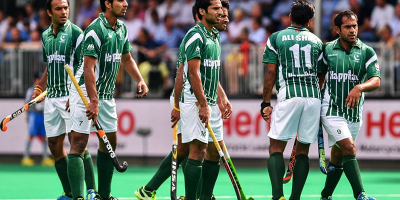Saudi Arabia executes 10 Pakistanis in 2015
RIYADH: Ten Pakistanis have been executed in Saudi Arabia so far in 2015, as the kingdom’s total number of executions rose to 88 on Tuesday.
The interior ministry identified the latest to be put to death as Saudi nationals Awad al-Rowaili and Lafi al-Shammary, who were convicted of smuggling amphetamines. They were executed in the northern region of Jawf, the ministry said in a statements on Tuesday.
Another Saudi, Mohammed al-Shihri, was separately put to death in the southwestern region of Asir for murder.
The conservative Islamic kingdom executed 87 people in 2014, according to reports.
Those beheaded this year include Siti Zainab, an Indonesian domestic worker convicted of murder despite concerns about her mental health, according to the Indonesian newspaper Kompas. Jakarta summoned Riyadh’s ambassador over her case, a rare diplomatic incident linked to Saudi Arabia’s executions, around half of which involve foreigners.
Also among this year’s dead are at least eight Yemenis, 10 Pakistanis, Syrians, Jordanians, and individuals from Myanmar, the Philippines, India, Chad, Eritrea and Sudan. Saudi Arabia ranked among the world’s top five executioners in 2014, according to Amnesty.
Under the kingdom’s strict version of Islamic sharia law, drug trafficking, rape, murder, apostasy and armed robbery are all punishable by death. Executions are carried out in public, mostly by chopping off the condemned person’s head with a sword.
A surge in executions began towards the end of the reign of King Abdullah, who died on January 23, but accelerated this year under his successor King Salman, in what Amnesty International has called an unprecedented “macabre spike”.
Activists are unable to explain specific reasons for the surge and officials have not commented. One activist said the death penalty is only carried out with the king’s final approval.
“So if the king is strict he will sign this paper,” said the activist. Salman has adopted a more assertive foreign policy and in April promoted his powerful Interior Minister Mohammed bin Nayef to be crown prince and heir to the throne.
Related News
Rana Mashhood Meets Italian Ambassador Armellin
Rana Mashhood, Italy’s Ambassador Armellini Discuss Trade, Education, Legal Labor Mobility and Youth Cooperation toRead More

Pakistan hockey players revolt against management
In response to the players’ bold stand and the mounting public outcry, the Pakistan SportsRead More


Comments are Closed